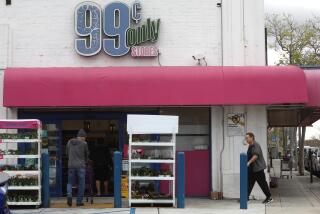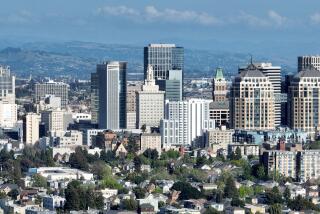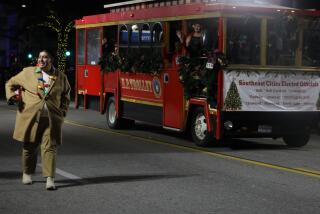Post-’92, a weeding out of South L.A. liquor stores
“This was a hot corner when that liquor store was there,” Marqueece Harris-Dawson said Saturday as he toured South Los Angeles. In the 1990s, the intersection of Van Ness and Manchester featured a liquor store that sold drug paraphernalia. Outside, dealers were waiting to help customers put their new purchases to use.
The store burned down in the April 1992 violence. It was replaced by El Nido Family Centers, which proivdes family counseling and education.
Harris-Dawson is president and CEO of the Community Coalition, which was formed in the months before the violence by Karen Bass (now a member of Congress) and other activists who wanted to do something about the crack epidemic and the related violence that was ravaging South Los Angeles. Organization members came to realize that the culture of drugs and violence centered around liquor stores.
“Couches were laid out in front” of the stores, Coalition Chief Operating Officer Joanne Kim told organization supporters. “The owners provide free cups of ice. There was an open bar environment.” First came the alcohol, then the drugs, then the violence.
In April 1992, coalition members met with Mayor Tom Bradley’s administration to discuss what to do about all the liquor stores. Then the not-guilty verdicts came down in the trial of four police officers accused in the beating of Rodney King. The city burned. Dozens of liquor stores were destroyed. Some civic and business leaders pledged to rebuild the city as quickly as possible -- in part by rebuilding the problem stores. The coalition lobbied, demonstrated, cajoled and fought -- and prevented the rebuilding of 150 liquor outlets.
Some of the victories were bittersweet. Liquor stores were replaced by fast-food drive-throughs -- an improvement, but not what activists had in mind. Some corners remain empty lots today.
But in the days after the stores burned, the areas around them recorded drops in violent crime calls of 27%, Kim said. Crime remains down, but economic development lags as well.
RELATED:
The L.A. riots, 20 years later
Then and now: Scenes from the riots
Patt Morrison: Q & A with Rodney King
More to Read
A cure for the common opinion
Get thought-provoking perspectives with our weekly newsletter.
You may occasionally receive promotional content from the Los Angeles Times.







